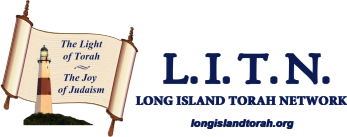Korach
Korach, a distinguished member of the Levite Tribe and a cousin of Moses and Aaron, instigates a rebellion in the Jewish camp. Korach and his followers organize a band of two hundred and fifty prominent Jewish leaders, and challenge Moses’ authority in appointing his brother High Priest. “You have taken excessive [power] for yourselves,” they accuse Moses and Aaron, “for all of the congregation is holy, and G-d is among them; why do you raise yourselves above the congregation of G-d?”
Moses falls on his face in distress, fearful of the dire consequences of this sin. Postponing the confrontation in the hope that they will change their minds, Moses announces that the matter will be decided tomorrow. He delineates the rules for the showdown: each contestant to the Priesthood will offer incense to G-d, and only the true Kohen Gadol will survive.
With characteristic humility, Moses tries to reason with the rebels, hoping for a peaceful resolution; but his overtures are rejected. Turning to G-d, Moses pointedly declares that he has never harmed nor taken advantage of a single Jew; he pleads that G-d punish the sinners while sparing the rest of the nation.
As Korach’s men confidently stand ready with their incense, Moses announces that the moment of truth is at hand: if these men live out their natural lifespan, “It is not G-d Who has sent me; but if G-d creates something new, and the Earth opens its mouth and swallows them, then you shall know that these men have angered G-d.” No sooner has he finished speaking than the earth does, indeed, open its mouth and swallow Korach alive.
The people complain to Moses, “You have put [the members of]G-d’s nation to death!” A plague breaks out; Moses instructs Aaron to offer incense – the same formula that killed Korach’s men. Aaron offers the incense, providing atonement for the people and stopping the plague – demonstrating that it is sin, not incense, that brings misfortune.
G-d performs one final miracle, laying to rest any further challenges to Aaron’s priesthood: twelve wooden staves are brought, one for each tribe, inscribed with the name of that Tribe’s leader. The staves are placed before the Holy Ark in the Tabernacle. The next morning, the Jews discover that Levi’s staff, inscribed with Aaron’s name, has sprouted blossoms and put forth almonds.
G-d instructs Aaron, his fellow Kohanim, and the rest of the Levite Tribe that henceforth it is they who will bear responsibility for the safety of the Jewish People. They must see to it that the masses obey the restrictions of the Sanctuary, and not endanger themselves by overstepping its sacred boundaries.
The obligations of Temple service come with special benefits; the Parsha concludes with a list of the tithes and other gifts enjoyed by the Levites and Kohanim, in recognition of their role in serving G-d and their People.
Click below to open a printable pdf
Moses falls on his face in distress, fearful of the dire consequences of this sin. Postponing the confrontation in the hope that they will change their minds, Moses announces that the matter will be decided tomorrow. He delineates the rules for the showdown: each contestant to the Priesthood will offer incense to G-d, and only the true Kohen Gadol will survive.
With characteristic humility, Moses tries to reason with the rebels, hoping for a peaceful resolution; but his overtures are rejected. Turning to G-d, Moses pointedly declares that he has never harmed nor taken advantage of a single Jew; he pleads that G-d punish the sinners while sparing the rest of the nation.
As Korach’s men confidently stand ready with their incense, Moses announces that the moment of truth is at hand: if these men live out their natural lifespan, “It is not G-d Who has sent me; but if G-d creates something new, and the Earth opens its mouth and swallows them, then you shall know that these men have angered G-d.” No sooner has he finished speaking than the earth does, indeed, open its mouth and swallow Korach alive.
The people complain to Moses, “You have put [the members of]G-d’s nation to death!” A plague breaks out; Moses instructs Aaron to offer incense – the same formula that killed Korach’s men. Aaron offers the incense, providing atonement for the people and stopping the plague – demonstrating that it is sin, not incense, that brings misfortune.
G-d performs one final miracle, laying to rest any further challenges to Aaron’s priesthood: twelve wooden staves are brought, one for each tribe, inscribed with the name of that Tribe’s leader. The staves are placed before the Holy Ark in the Tabernacle. The next morning, the Jews discover that Levi’s staff, inscribed with Aaron’s name, has sprouted blossoms and put forth almonds.
G-d instructs Aaron, his fellow Kohanim, and the rest of the Levite Tribe that henceforth it is they who will bear responsibility for the safety of the Jewish People. They must see to it that the masses obey the restrictions of the Sanctuary, and not endanger themselves by overstepping its sacred boundaries.
The obligations of Temple service come with special benefits; the Parsha concludes with a list of the tithes and other gifts enjoyed by the Levites and Kohanim, in recognition of their role in serving G-d and their People.
Click below to open a printable pdf
| parsha_snapshot_korach_m.pdf | |
| File Size: | 524 kb |
| File Type: | |

